
Canada’s Future Relies on Exploration Remote Site Services
Exploration remote site services play a foundational role in enabling Canada’s most strategically important industries to operate in some of

A finely tuned food supply chain management process in isolated environments requires careful planning, efficient logistics, and continuous monitoring in order to provide exceptional foodservice to residents round the clock regardless of the distance from urban centers. This ensures seamless deliveries, fresh ingredients, and providing delicious and nutritious meals safely, quickly and efficiently.
Supplying food to remote locations poses unique challenges. Limited access to transportation, unpredictable weather conditions, and long distances from suppliers can disrupt traditional supply chain processes. Embracing these challenges as opportunities to innovate and develop robust strategies can help guarantee a continuous and reliable flow of provisions to remote camps.
A robust food supply chain management begins with efficient procurement strategies. Collaborating with a network of reputable suppliers ensures that clients receive the freshest and highest-quality ingredients on schedule. Additionally, local sourcing wherever possible, helps support nearby communities and reduces the environmental footprint of the supply chain.
Flexibility is key when managing food supply chains in remote locations. Anticipating and adapting to potential challenges are essential to maintain quality, compliance, and food safety. Maintaining strong relationships with suppliers, closely monitoring inventory levels, and developing contingency plans to navigate unforeseen circumstances can ensure uninterrupted food supply and service.
Maintaining the quality and freshness of perishable goods during delivery operations is a top priority. Investing in temperature-controlled transportation is essential to safeguard food integrity throughout the journey to remote locations. Whether it’s fresh produce, dairy products, or premium meats, an efficient logistics team ensures that all items arrive in optimal condition.
An efficient food supply chain management operates on a just-in-time delivery model. Carefully forecasting consumption patterns and client preferences, helps minimize waste and ensures that supplies are delivered precisely when needed. This approach not only reduces food wastage but also optimizes storage space in remote camps.
Effective inventory management is at the core of successful food supply chain management. Meticulously tracking consumption patterns, analyzing feedback from clients, and fine-tuning menus to optimize ingredient usage are all part of the process. Minimizing excess inventory and employing smart portion control can help reduce waste and enhance sustainability in camp operations.
Quality assurance and compliance are non-negotiable. We maintain rigorous standards throughout our food supply chain, adhering to safety protocols, hygiene regulations, and nutritional guidelines. Our team of food experts ensures that every meal meets the highest standards of taste, nutrition, and safety.
Seamless food supply chain management is the backbone of high quality foodservice in remote locations. A commitment to local sourcing, temperature-controlled transportation, just-in-time delivery, and waste reduction contributes to sustainability and quality assurance. And by embracing the challenges, optimizing procurement, and adapting to remote conditions, food and facilities service providers can guarantee a diverse and delicious culinary experience for clients on every occasion.
Domco Group of Canada Limited is one of the most trusted and well respected remote sites service providers in Canada. Fully Canadian and independently owned, Domco has been in operation since 1945. We offer integrated remote site solutions, including a nutritious and well planned menu cycle, long-term relationship building, and deep Canadian roots in remote locations with Aboriginal communities.
Let us take you through some key advantages that set us apart.

Exploration remote site services play a foundational role in enabling Canada’s most strategically important industries to operate in some of

Selecting the right oil and gas facility maintenance provider is a pivotal decision for companies operating in Canada’s remote regions—from

In Canada, mine camp management plays a key role in supporting workers at remote mining sites. These sites provide housing,
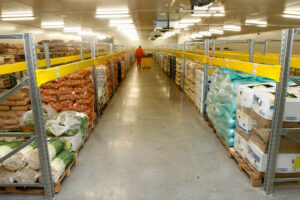
Remote food catering plays an important role in supporting workers across Canada’s most isolated job sites. Whether in the far
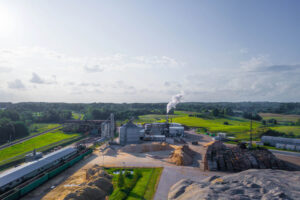
Remote camp maintenance jobs in Canada support the full lifecycle of temporary worksites—from setup (mobilization) to daily operations (maintenance) and

Remote catering companies play a vital role in supporting Canada’s vast and varied industries, especially those operating in isolated or
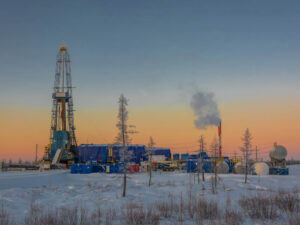
Oil and gas facilities management is a complex and critical discipline that ensures energy operations in Canada’s most remote locations
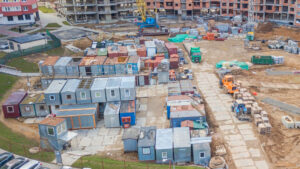
In the rugged, often isolated world of remote construction camps, construction facility management is the invisible force that sustains daily

Remote maintenance is the backbone of operational continuity in Canadian work camps, especially those located in isolated regions supporting industries
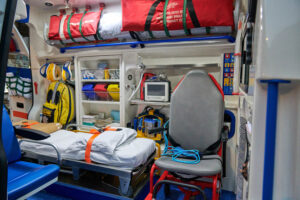
Remote camp health and safety is a vital concern in the management of Canadian remote workforce camps, especially in resource-driven

Keeping crews energized and satisfied starts with smart camp food menu ideas—especially in remote environments where morale and nutrition go

Gas remote camp mobilization is a critical operational phase in Canada’s oil and gas industry, particularly in remote and northern

When it comes to remote site security in Canadian work camps, ensuring safety and protection is paramount. These facilities, often

In Canada’s vast and resource-rich landscapes, remote site maintenance plays a pivotal role in sustaining the operations of work camps

In Canada’s vast and often isolated regions, remote camp management plays a vital role in advancing sustainability across diverse work
